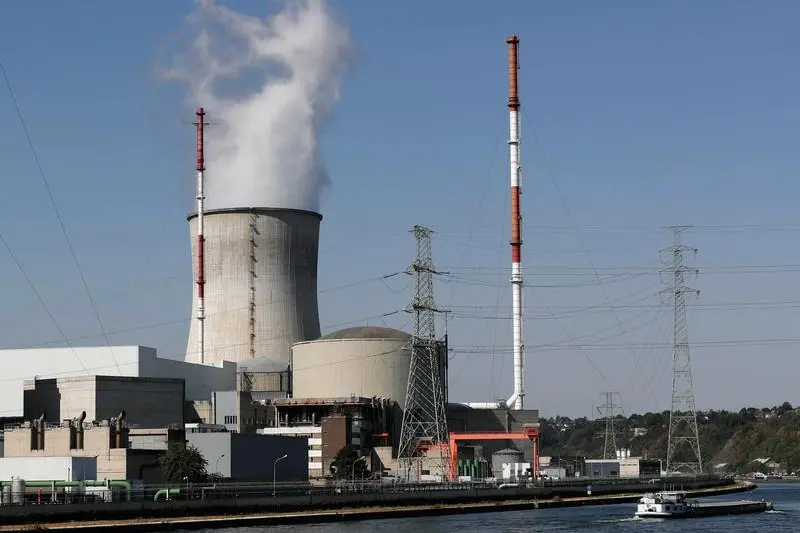PHOTO
JEDDAH Faced with growing energy demand and to reduce reliance on fossil fuels, Saudi Arabia is turning to nuclear power to diversify its electricity-generating capability. The Kingdom plans to build two large nuclear power reactors as part of a program to deliver as many as 16 nuclear power plants over the next 25 years at a cost of more than $80 billion.
Saudi Gazette spoke with Milos Mostecky, director of the Rosatom project in Saudi Arabia, to shed light on the countrys nuclear ambitions. Rosatom is a Russian state corporation headquartered in Moscow that specializes in nuclear energy and Mostecky is also vice president of Rosatom Overseas.
Speaking about his companys future cooperation with KACARE and Saudi Arabias Ministry of Energy and Mineral Resources, Mostecky said, It is a great honor for us at Rosatom that the Kingdom of Saudi Arabia invited us to bid on a such a large-scale project as construction of the first nuclear power plant in Saudi Arabia. Since October 2017, at the invitation of KACARE along with other suppliers, we contribute in the process, which we call a competitive dialogue. Being in charge of the tender KACARE is our main counterpart in the process.
He said the issue of Rosatoms potential participation in the construction of nuclear power plants in Saudi Arabia, as well as in other projects in the field of nuclear energy, was being discussed at the highest levels.
Asked about the areas of energy cooperation with local companies, Mostecky said the implementation of a massive infrastructure project such as construction and operation of a nuclear power plant in fact offers large capacity and localization opportunities for local suppliers, and it consequently represents a powerful driving force of industrial and economic development. The record shows that one new job generated by a NPP construction creates 10 jobs in supporting industries, he added.
Rosatom is actively working with a big number of local companies. Many of them have already signed solicitation of interest, based on which we are working further on refining the scope of works that can be localized. I would like to stress the crucial importance of events with participation of all interested parties, such as the workshop on Russian nuclear technologies that we organized with assistance of Saudi Arabian Chamber of Commerce on Dec. 5 in Riyadh. I am confident that the open dialogue is mutually beneficial. It allows local companies to be introduced to the standards that Rosatom imposes to suppliers on the one hand, on the other it is a great opportunity for us to size their possibilities in the framework of implementation of the project, Mostecky said.
It is also critical to underscore that in case Saudi Arabia takes a decision to build several power units, share of local companies involved in the project will increase from stage to stage, he said, adding that this strategy was successfully tested on a number of recent projects implemented by Rosatom in different markets.
Mostecky was positive that by achieving energy efficiency, especially in the field of renewable energy, Saudi Arabia can reduce its dependence on oil in line with its Vision 2030.
Today there are 450 nuclear power reactors operating in 30 countries, which provide about 11 percent of the worlds electricity. According to World Nuclear Association (WNA), nuclear energy represents one of the best sources of low-carbon power in terms of quality-price ratio. Furthermore, nuclear power is as safe for environment as renewable energy sources are, but contrary to them, it does not depend on weather conditions, Mostecky said.
From the point of view of energy capacity, nuclear fuel is much more powerful in comparison with fossil fuels: 630 grams of uranium releases energy equivalent to 70 tons of coal. This said, modern VVER 1200 Generation 3+ reactors of Russian design are able to achieve net capacity factors of well over 90 percent, he said.
Mostecky said, Calling for the development of nuclear energy does not mean that they are opposed to renewable sources of energy. On the contrary, they are complementary. Globally, nuclear power is considered a viable baseload alternative, producing power 24/7 with no intermittence by nature. This makes nuclear an ideal source of energy for powering industry and important infrastructural facilities such as hospitals and school, along with satisfying all the civil population energy needs. While nuclear is unrivaled as a baseload energy supplier, renewables are perfect to meet peak energy demand.
He said nuclear energy allows not only to diversify national energy mix and supply Saudi Arabia with stable, clean and affordable energy for a life span of minimum 60 years, but also ensures job creation and allows to reorient the released natural resources to the external market. It also increases state revenues from taxation and export of high-technology products and contributes to research and development, he added. SG
Copyright 2019 The Saudi Gazette. All Rights Reserved. Provided by SyndiGate Media Inc. (Syndigate.info).





















